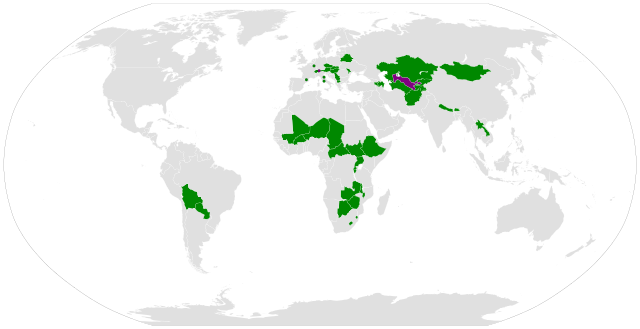Our last hike was through Altai Tavan Bogd national park to Malchin Uul, a sacred mountain. Tavan Bogd means Five Saints and refers to the highest peaks there: a tantalising curtain of rock behind the huge and graceful Potanin glacier, on the border with Russia and China. At 4,050 metres, Malchin is the baby of the five; the only one that can be climbed without specialist equipment, its bewitching curves covered in scree from the fracturing of the weather.
Traditionally in Mongolia, mountain guides are male but as our trip progressed Oyunaa became determined to climb. Especially when told by guides we met along the way that the mountain didn’t want her because she was a girl; that she would bring bad luck. Oyunaa was having none of it.
Category: Mongolia 🇲🇳 (Page 1 of 2)
Starts at 7 minutes from the start.
Lots of questions answered. For example, find out why hooking up with a local charity, and having paper maps is important. Also find out what Ethiopia, Gabon, Mongolia, and the Sahara have in common.

Mongolia!! The name of this landlocked Asian country has a magical ring to it. We could not think of Mongolia without our minds drifting on the image of the legendary Genghis Khan. Born in the 1160s, he spent his early life assembling a dedicated army of nomads from the immense grasslands of the Gobi, at 500,000 square miles, the fifth largest desert in the world. His fierce warriors were relentless. They could ride day and night, making a slice in their horses’ neck to drink the blood. By 1279 Mongols had gained full control of all of China, undeterred by the Great Wall. See how well walls work?
Read more of Gary and Monica Wescott’s overland adventures through Mongolia in October 2014
Mongolia # 1 – Land of Genghis Khan
Mongolia # 2 – Heading west on the Main Highway
Mongolia # 3 – Heading west to Olgii
Mongolia #4 – Olgii’s Golden Eagle Festival – Day 1
Mongolia #5 – Olgii’s Golden Eagle Festival – Day 2
History is full of long and legendary highways but none – frankly – come close to the Silk Road. It’s not just the magnitude (at least 4,000 miles, in more than 40 countries) but the mythic potency of the project. The world was cleft into east and west in the Middle Ages.
But long before, the Silk Road – which has existed in one form or another since the fourth century BC – breached any such divide. While trade was its raison d’être – Chinese silk, of course, but also salt, sugar, spices, ivory, jade, fur and other luxury goods – the road forged deep social, cultural and religious links between disparate peoples.
And
The Silk Road was not a road, but a network. The central caravan tract followed the Great Wall, climbed the Pamir Mountains into Afghanistan, and crossed to the Levant. Along the way were spurs branching off to river ports, caravanserai, oases, markets and pilgrimage centres. Journeys demanded meticulous preparation: the Silk Road and its tributaries cut through some of the harshest, highest, wildest places on Earth.
Read More at The Telegraph (paywall)…
Vast and spacious as it is, I find the Gobi claustrophobic, contradictory as that may sound. Once in the desert, there is no quick way out. No escape from the sand, the dust and the emptiness that exist nowhere else than in deserts.
Three friends set out for the far western corner of Mongolia to combine mountain biking and packrafting adventure. The goal was to traverse the Mongolian Altai over 12 days. The only inhabitants of the region are Kazakh nomads.
